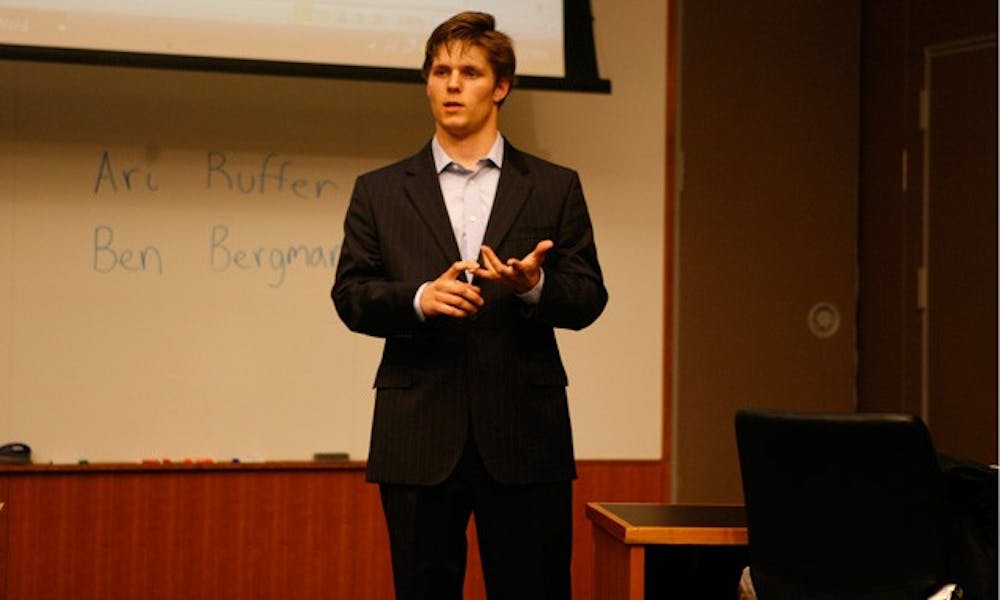In its first meeting of the year, Duke Student Government approved a new timeline for the 2010-2011 DSG elections, creating one election for all DSG Executive Board candidates and a separate one for senatorial candidates.
This reverses last year’s reshuffling of the election calendar in which vice president and Senate candidates were elected in a different election than the office of president and executive vice president.
“The turnout in the election for vice president [and Senate] was actually very low, about 25 percent,” said DSG Executive Vice President Pete Schork, a junior. “It was really discouraging. Usually we have a combined election combining all of [the DSG Executive Board] at one time and the turnout... is comparable to all of our peer institutions.”
Last year’s split was an attempt to raise voter turnout in Senate elections and allow losing DSG presidential and executive vice presidential candidates to run for a vice presidential position.
Instead, Schork said voter turnout actually decreased by about 10 to 15 percent due to “voter burnout,” and no losing presidential or executive vice presidential candidate sought a vice presidential position.
“It’s important to note the combined election worked relatively efficiently,” Schork said in an interview after the meeting. “The endorsement process [last year] was very difficult for endorsing groups [of people].”
DSG also established a Student Group Constitution Review Committee, a subcommittee within the Student Organization Finance Committee.
The Review Committee will be responsible for reviewing all student group constitutions to ensure they uphold election laws and rules as well as the Duke Community Standard.
The committee is composed of SOFC chair Max Tabachnik, a senior, three SOFC members and three DSG senators who were appointed in last night’s meeting.
In other business
Senior Ben Bergmann, a senator in the athletics and campus services committee, was elected president pro-tempore.
The president pro-tempore is responsible for enforcing house rules during discussions and stepping in for the executive vice president when he participates in Senate debate.
“Part of the [pro-tempore] job is to make sure things run smoothly in a nonpartisan way,” Bergmann said. “But even though that’s a central part of the job, you don’t want to not take a stand on issues, not talk them out. I want Pete to be able to speak.”
The Senate also added a new part to DSG meetings called “question time” during which senators have 10 minutes to ask DSG vice presidents questions of interest.
DSG also selected three senators to sit on SOFC’s Member Interview Committee. The committee will intensify the SOFC application process, requiring candidates to submit an application and resume and go through an interview process before acquiring membership.
“In the past, for SOFC members, you just came in to speak for a minute [and] you got questioned for 30 seconds in front of the whole Senate,” Tabachnik said. “I wanted to make it more rigorous, having a more thorough application process. I thought this [committee] would be a good idea with senators as well.”
Get The Chronicle straight to your inbox
Signup for our weekly newsletter. Cancel at any time.

